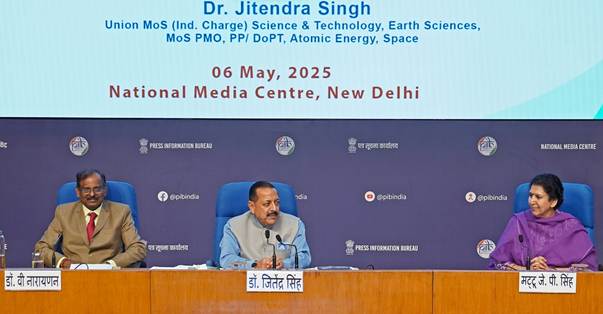Global Space Exploration Conference (GLEX) 2025

- 09 May 2025
In News:
India is set to host the 12th edition of the Global Space Exploration Conference (GLEX) 2025 from 7th to 9th May 2025 in New Delhi, marking a significant milestone in the nation's emergence as a key global player in space exploration.
Key Highlights of GLEX 2025:
- Theme: “Reaching New Worlds: A Space Exploration Renaissance”
- The conference theme underscores a renewed global commitment to innovation, inclusivity, and international collaboration in space science and technology.
- Organisers:
- International Astronautical Federation (IAF) – The world’s foremost space advocacy organisation.
- Indian Space Research Organisation (ISRO) – Serving as the primary host, reflecting India’s growing stature in the global space ecosystem.
- Astronautical Society of India (ASI) – Acting as the co-host and supporting India's role in global space diplomacy.
GLEX 2025 is expected to bring together global experts, policymakers, scientists, and industry leaders to discuss cutting-edge advancements, collaborative missions, and the future of space exploration. It will also highlight India's evolution from a regional space power to a central figure in the international space community.
About the International Astronautical Federation (IAF):
- Established: 1951
- Membership: Over 500 organisations from 78 countries, including major space agencies, private companies, academic institutions, and research bodies.
- Vision: “A space-faring world cooperating for the benefit of humanity”
- Motto: “Connecting @ll Space People”
- The IAF promotes global space cooperation and knowledge exchange. Through platforms like GLEX, it fosters dialogue on programmatic, technical, and policy aspects of space missions.
Significance for India:
GLEX 2025 reflects India’s growing prominence in the global space domain, reaffirming its commitment to peaceful space exploration and international collaboration. The event offers a valuable opportunity for India to showcase its achievements, build new partnerships, and contribute to shaping the future of global space policy and science.
